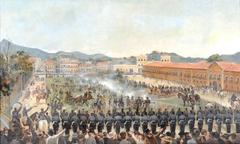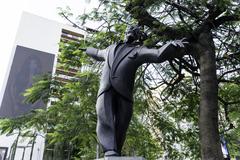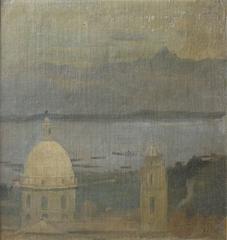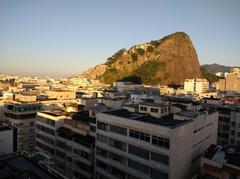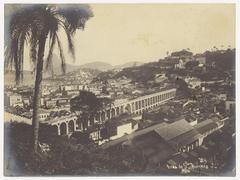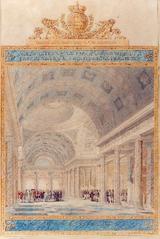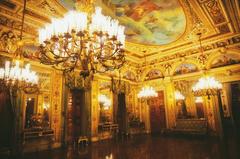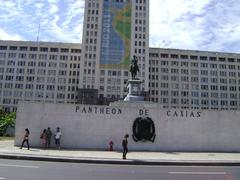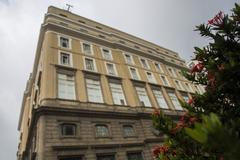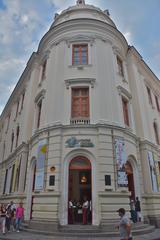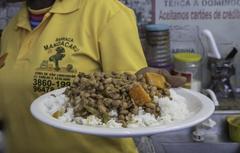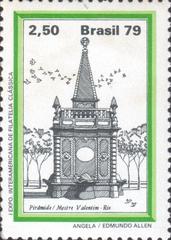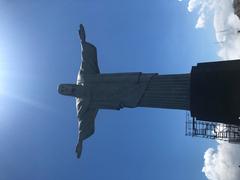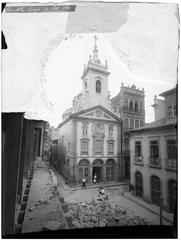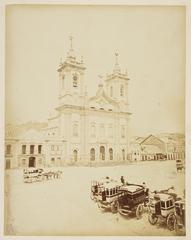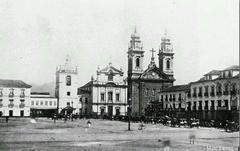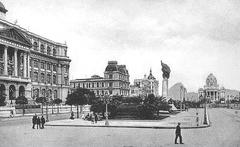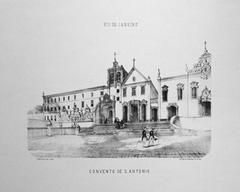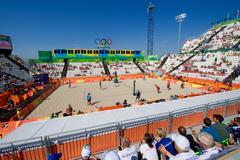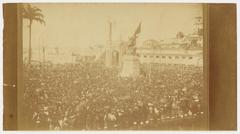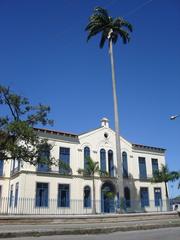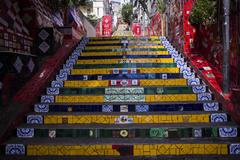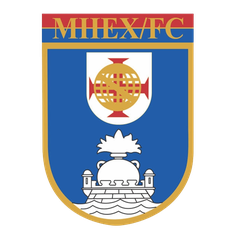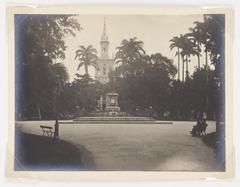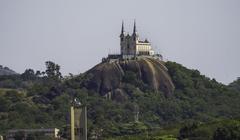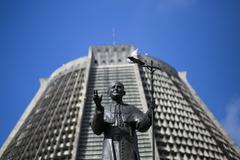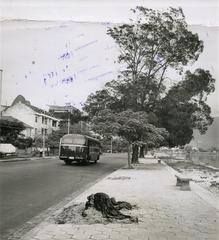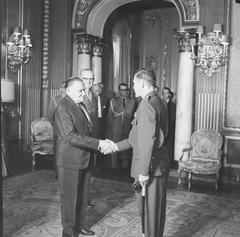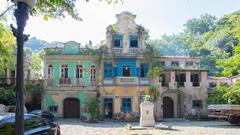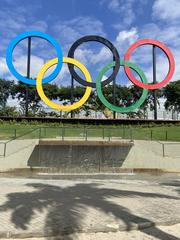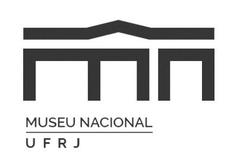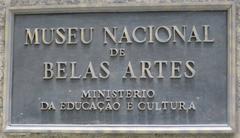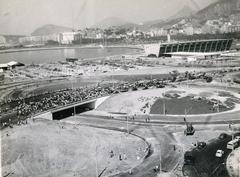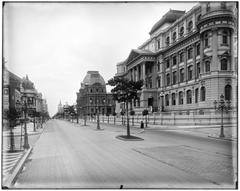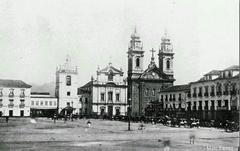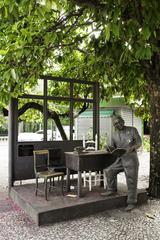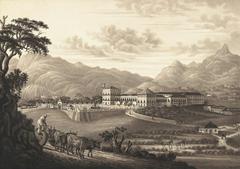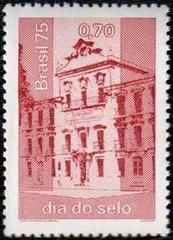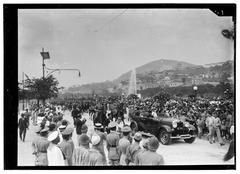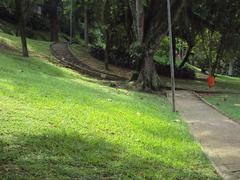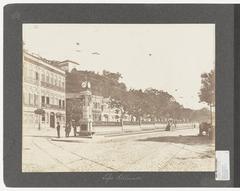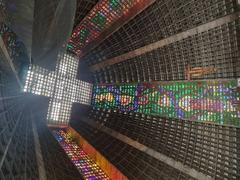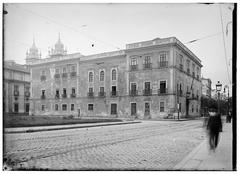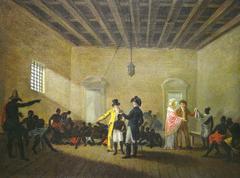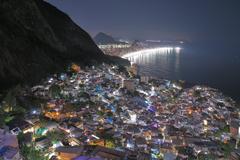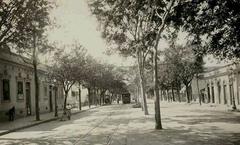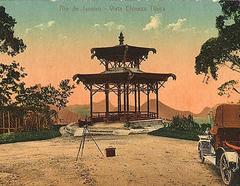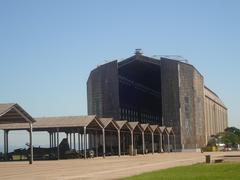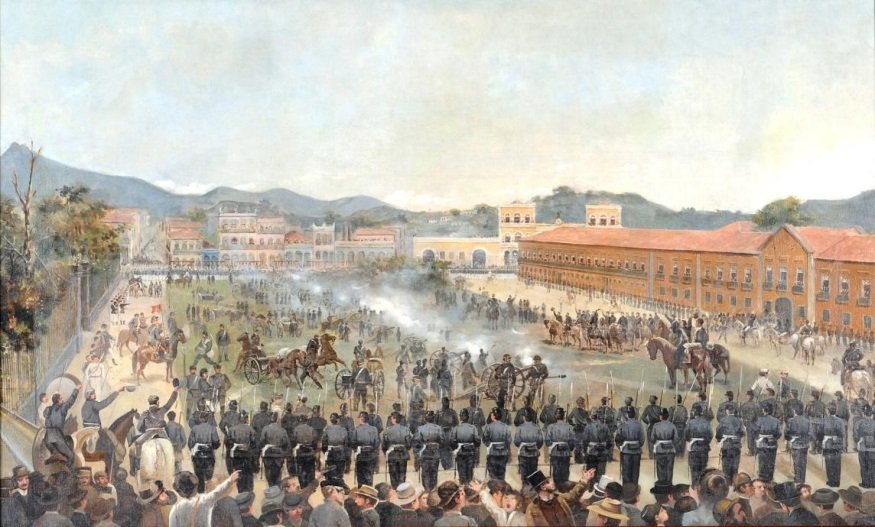
Comprehensive Guide to Visiting Museu Casa De Benjamin Constant, Rio De Janeiro, Brazil
Published Date: 17/08/2024
Introduction to the Museu Casa De Benjamin Constant
Discover the rich history and cultural significance of the Museu Casa De Benjamin Constant, a pivotal site in Rio de Janeiro that celebrates the life and legacy of one of Brazil’s most influential figures. This museum, once the residence of Benjamin Constant Botelho de Magalhães, offers a unique glimpse into the life of a man who played a crucial role in the establishment of the Brazilian Republic. Born on October 18, 1836, in Niterói, Rio de Janeiro, Constant was a professor of mathematics, engineer, and military officer whose contributions were instrumental in transitioning Brazil from an empire to a republic (Museu Casa de Benjamin Constant).
Located in the culturally rich Santa Teresa neighborhood, the museum was inaugurated on October 18, 1982, exactly 146 years after Constant’s birth. It offers visitors an opportunity to explore the 19th-century neoclassical estate, complete with extensive gardens and period-appropriate decor, providing a comprehensive view of both the private and public aspects of Benjamin Constant’s life (Wikipedia). This guide will delve into the museum’s historical importance, visiting hours, ticket information, and travel tips to ensure a memorable visit.
Table of Contents
- Introduction
- Historical Background
- The Establishment of the Museum
- Collections and Archives
- Restoration and Current Status
- Visitor Information
- Significance of the Museum
- Visitor Tips
- FAQ
- Conclusion
Historical Background
The Life and Legacy of Benjamin Constant
Benjamin Constant Botelho de Magalhães was a pivotal figure in Brazilian history, known for his contributions as a professor of mathematics, engineer, and military officer. Born on October 18, 1836, in Niterói, Rio de Janeiro, Constant played a crucial role in the establishment of the Brazilian Republic. His intellectual pursuits and political activism made him a significant figure in the transition from the Brazilian Empire to the Republic.
Constant’s involvement in the military and his academic career at the Military School of Rio de Janeiro positioned him as a key influencer in the political landscape of Brazil. He was a staunch advocate for positivism, a philosophy that emphasizes empirical science and logic, which greatly influenced his political ideology. His efforts culminated in the proclamation of the Republic on November 15, 1889, a date that is still celebrated in Brazil. Constant’s legacy is preserved in the Museu Casa De Benjamin Constant, which was his residence and now serves as a museum dedicated to his life and work.
The Establishment of the Museum
The Museu Casa De Benjamin Constant was inaugurated on October 18, 1982, exactly 146 years after Constant’s birth. The museum is located in the Santa Teresa neighborhood of Rio de Janeiro, an area known for its cultural and historical significance. The house itself is a testament to 19th-century architecture and has been preserved to reflect the period during which Constant lived.
The museum is part of the Brazilian Institute of Museums (Ibram), which falls under the Ministry of Culture. This affiliation ensures that the museum is maintained to high standards and that its collections are preserved for future generations. The establishment of the museum was a significant step in honoring Constant’s contributions to Brazilian society and providing a space for the public to learn about his life and the broader historical context of his time.
Collections and Archives
The Benjamin Constant House Museum boasts a diverse collection that includes objects, works of art, clothing, and furniture from the 19th and 20th centuries. These items provide a glimpse into the daily life and social customs of the period. The museum also houses a library and historical archive that preserve rare books, handwritten and printed documents from the imperial and republican periods.
One of the most significant aspects of the museum’s collection is the correspondence from Benjamin Constant and his family members. These letters offer invaluable insights into the personal and professional life of Constant, as well as the political and social issues of his time. The museum also holds collections of images showcasing all existing photographic processes, including the daguerreotype, which was one of the earliest forms of photography.
Restoration and Current Status
As of the current date, the Benjamin Constant House Museum is temporarily closed for restoration. This closure is part of an ongoing effort to preserve the historical integrity of the building and its collections. The restoration work is crucial for maintaining the museum’s structural integrity and ensuring that its collections are preserved for future generations.
The museum’s official website provides updates on the restoration process and the anticipated reopening date. Visitors are encouraged to check the website or contact the museum directly for the most up-to-date information regarding visiting hours and any potential changes to procedures.
Visitor Information
Visiting Hours and Tickets
While the Benjamin Constant House Museum is currently closed for restoration, it typically operates from Tuesday to Sunday, from 9:00 AM to 5:00 PM. Admission is usually free, but it is advisable to check the official website for any changes once the museum reopens.
Guided Tours
The museum offers guided tours that provide a comprehensive understanding of Benjamin Constant’s life and the historical context of his time. These tours are available in both Portuguese and English. For group tours, it is recommended to make a reservation in advance.
Accessibility
The museum is committed to being accessible to all visitors. It is equipped with ramps and elevators to accommodate those with mobility issues. For any specific accessibility needs, visitors are encouraged to contact the museum prior to their visit.
Significance of the Museum
The Museu Casa De Benjamin Constant is not just a repository of historical artifacts; it is a symbol of Brazil’s transition from an empire to a republic. The museum serves as an educational resource, offering visitors a comprehensive understanding of the political, social, and cultural changes that occurred during Constant’s lifetime.
The museum’s location in Santa Teresa adds to its significance. Santa Teresa is one of the oldest neighborhoods in Rio de Janeiro, known for its winding streets, historic buildings, and vibrant cultural scene. The neighborhood itself is a living museum, providing a backdrop that enhances the historical experience of visiting the Museu Casa De Benjamin Constant.
Visitor Tips
For those planning to visit the Museu Casa De Benjamin Constant, it is essential to check the museum’s official website for the latest information on its reopening status. The museum is located at R. Monte Alegre, 255 - Santa Teresa, Rio de Janeiro, and is easily accessible by public transportation.
While the museum is temporarily closed, visitors can explore other nearby attractions in Rio de Janeiro, such as the Museum of Tomorrow, the Marine Aquarium of Rio de Janeiro, and the Royal Portuguese Reading Room. These sites offer a diverse range of experiences that complement a visit to the Museu Casa De Benjamin Constant.
FAQ
Q: What are the visiting hours for the Museu Casa De Benjamin Constant?
A: The museum typically operates from Tuesday to Sunday, from 9:00 AM to 5:00 PM. However, it is currently closed for restoration. Check the official website for the latest updates.
Q: Is there an admission fee for the museum?
A: Admission is usually free, but visitors should verify this information on the official website.
Q: Are guided tours available?
A: Yes, guided tours are available in both Portuguese and English. It is advisable to book in advance for group tours.
Q: Is the museum accessible to visitors with mobility issues?
A: Yes, the museum is equipped with ramps and elevators to ensure accessibility for all visitors.
Conclusion
In summary, the Museu Casa De Benjamin Constant is a vital cultural and historical institution that offers a deep dive into the life of one of Brazil’s most influential figures. Its collections and archives provide a rich tapestry of the country’s transition from empire to republic, making it a must-visit for anyone interested in Brazilian history. Stay updated on the museum’s reopening and plan your visit to explore this significant piece of Rio de Janeiro’s heritage.
References and Further Reading
- Museu Casa de Benjamin Constant Museu Casa de Benjamin Constant
- Wikipedia, Museu Casa de Benjamin Constant Wikipedia
- Riotur, Museu Casa de Benjamin Constant Riotur
- Brasiliana Museus, Museu Casa de Benjamin Constant Brasiliana Museus
